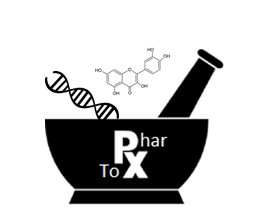General Information

At the department of Pharmacology & Toxicology, a multidisciplinary team of biologists, chemists, pharmacologists and toxicologists is working together to study the role of redox processes in drug toxicity and in pathologies of the lung, the cardiovascular system, the gut and the liver. The balance between oxidants and anti-oxidants is often disturbed in chronic diseases, such as Chronic Obstructive Pulmonary Disease (COPD), Non-alcoholic steatohepatitis or ulcerative colitis. In all these diseases, there is an elevated generation of oxidants (reactive oxygen species), which can be counteracted by increased usage of enzymatic and non-enzymatic antioxidants. However, it is now also clear that some oxidants, like hydrogen peroxide, play an important role as signaling molecules, even in healthy cells. We are interested in the nature of redox alterations that accompany chronic inflammation and chronic diseases, and how imbalances in redox regulation can be restored by therapeutic or dietary interventions.
The research is performed on a (bio-)chemical, cellular, organ or whole animal level. Also clinical human research is performed.
Some examples of the current projects are:
- Protection against doxorubicin-induced cardiotoxicity. Doxorubicin is widely used as a antitumour agent. Its major drawback is its cardiotoxicity. Flavonoids offer protection. Flavonoids are also investigated for their protection against more general cardiovascular damage and for their contribution to maintaining cardiovascular health.
- The antioxidant network in various tissues. Many chronic diseases are associated with oxidative stress. The involvement of the antioxidant network in chronic lung diseases (e.g. COPD, interstitial lung disease) or liver diseases (e.g. NASH) is investigated.
- The role of oxygen radicals in fibrosis and the possibilities to protect against ROS-induced fibrosis.
- Using exhaled volatile organic compounds as biomarkers of oxidative stress in inflammatory diseases.
- Maternal exposure to high doses of flavonoids during pregnancy and effects in offspring.

